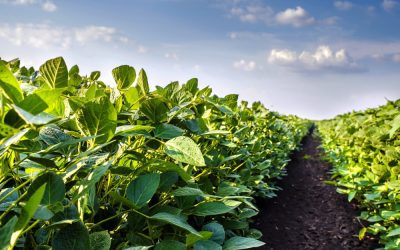Mixed results in rulings involving EPA in June


BY BLAIR SHIPP
ASA State Policy Communications Coordinator
June was a mixed bag month for decisions involving the Environmental Protection Agency and agriculture policy. While soy growers were left dissatisfied at the agency’s final Renewable Volume Obligations, they look forward to EPA and the Army Corps of Engineers updating the current “Waters of the U.S.” rule to remain consistent with the U.S. Supreme Court’s Sackett v. EPA decision.
Soy Growers Frustrated with EPA Final RVOs
EPA on June 21 released its final RVOs for 2023, 2024 and 2025, which sets annual biofuel blending targets under the Renewable Fuel Standard. Soy growers are disappointed with the rule, as it does not accurately reflect the growth expected in the industry and falls far below the industry’s current production.
For the first year of the rule, EPA did not make any increases to the biomass-based diesel (BBD) category over the totals reflected in the draft rule released in December, despite ASA and others in the BBD industry sharing data demonstrating that the sector saw significant growth. For the years 2024 and 2025, EPA only made modest increases in the BBD and non-cellulosic advanced biofuels categories. EPA acknowledged that some of this growth resulted from updated feedstock availability projections based on data ASA shared.
“This announcement is a letdown for soy growers. It threatens the success of the biomass-based diesel industry by significantly dialing back annual increases in volume obligations and failing to account for the progress being made in biofuels investment and growth,” said ASA President Daryl Cates, a farmer from Illinois, in a media release from the organization.
BBD is a vital domestic market for soybean farmers. The RFS has reduced U.S. dependence on foreign oil, reduced greenhouse gas emissions and added value by increasing demand for soybeans and corn. Billions of dollars are being invested in biodiesel, renewable diesel, soybean crushing plants and other infrastructure to be able to produce more BBD.
Soy farmers were encouraged by EPA’s 2022 volume target—which included the highest-ever number for total renewable fuels and specifically for biomass-based diesel since the renewable fuel standard was created— and were hopeful EPA would continue its support of the RFS. However, EPA’s final rule will limit growth in soy-based biofuels over the next three years and leaves farmers and biofuels industry partners reeling.
EPA aims to update WOTUS by Sept. 1
The Biden administration has announced its plans to directly issue a final rule on the definition of “Waters of the United States” by Sept. 1, consistent with the U.S. Supreme Court’s May 25 decision in the case of Sackett v. Environmental Protection Agency.
The Supreme Court ruled last month that the “significant nexus” test – heavily used in the new WOTUS rule – shall not be used to determine which streams and wetlands fall under the scope of Clean Water Act protections.
Assistant Secretary of the Army for Civil Works Michael Connor told the House Transportation and Infrastructure Committee that EPA and the U.S. Army Corps of Engineers plan to use expedited authorities to finalize a new regulation on the issue. Connor explained that the agencies are looking at “surgically removing” the significant nexus elements from the recent rule.
While farm groups are pleased with this quick move to execute the court’s opinion, this approach is still likely to raise concerns with agricultural stakeholders, who are looking at options to provide comments on the revisions.
Infrastructure impact
Connor also explained that until the rule is finalized, the Corps has halted approval of jurisdictional determinations. This is what infrastructure developers request from the Corps to understand which waterbodies are subject to Clean Water Act jurisdiction and therefore require a federal permit.
This is likely to slow down the Biden administration’s rollout of the ASA-supported Bipartisan Infrastructure Law.
Posted: July 19, 2023
Category: Indiana Corn and Soybean Post - Summer 2023, News




